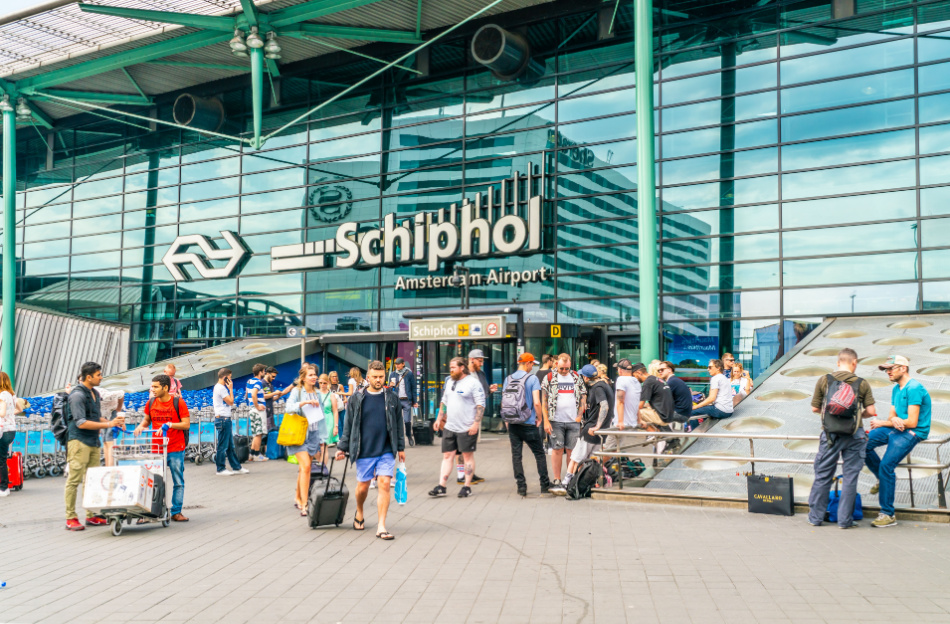On November 5, 2022, scores of climate activists gathered in front of luxury planes and private jets at Amsterdam’s Schiphol Airport, preventing them from taking off for several hours.
Now, nearly five months later, the airport has declared that private jets would be prohibited, as well as additional actions to limit noise pollution and greenhouse gas emissions in accordance with the Paris Accord.
“Schiphol connects the Netherlands with the rest of the world. We want to keep doing that, but we must do it better,” Royal Schiphol Group CEO Ruud Sondag said in an announcement. “The only way forward is to become quieter and cleaner more rapidly. We have thought about growth but too little about its impact for too long. We need to be sustainable for our employees, the local environment, and the world.”
Cleaner, greener measures
The airport announced the following new measures, which will be implemented between 2025 and 2026:
- The airport will be closed to private jets.
- By prohibiting planes from taking off between midnight and 6 a.m. and landing between midnight and 5 p.m., total traffic will be reduced by 10,000 flights per year.
- Raising the bar for the kind of planes that can use the airport in order to phase out louder models.
- Plans to build an additional Kaagbaan Runway have been scrapped.
According to the airport, private and small business travel departing from Amsterdam emits around 20 times more climate-warming carbon dioxide per passenger than commercial aircraft. It was also calculated that the three first steps combined would lower the number of persons experiencing disturbance near the airport by 16 percent and the number of local households awakened at night by aviation traffic by 54 percent.
“I realize that our choices may have significant implications for the aviation industry, but they are necessary,” Sondag said. “This shows we mean business. It is the only way, based on concrete measures, to regain the trust of employees, passengers, neighbors, politics, and society.”
A win for climate advocates
Climate advocates have long spoken of the need to reduce luxury, particularly short-haul jet travel. According to the International Energy Agency, worldwide aviation’s energy emissions will account for over two percent of total global emissions in 2021, and they have grown faster in recent decades than emissions from other modes of transportation such as cars, trains, and boats. As Reuters reported in November, campaigners in the Netherlands claimed that Schiphol was the country’s largest single source of emissions, dumping 12 billion kilos (about 26.5 billion pounds) of carbon dioxide into the atmosphere each year.
“We want fewer flights, more trains, and a ban on unnecessary short-haul flights and private jets,” Greenpeace Netherlands campaign leader Dewi Zloch told Reuters of the 2022 protests.
At the time of the protests, Schiphol stated that it had vowed to be zero emissions by 2030 and to support the industry’s overall objective of reaching net-zero emissions by 2050. Activists appear to be happy with its progress.
“Finally, they seem to turn the tide,” Greenpeace air transport expert Maarten de Zeeuw told The Washington Post. “We are happy that Schiphol is listening.”
Separately, the Dutch government has stated that it will lower the number of flights in the country from 500,000 to 440,000 by the end of this year.












